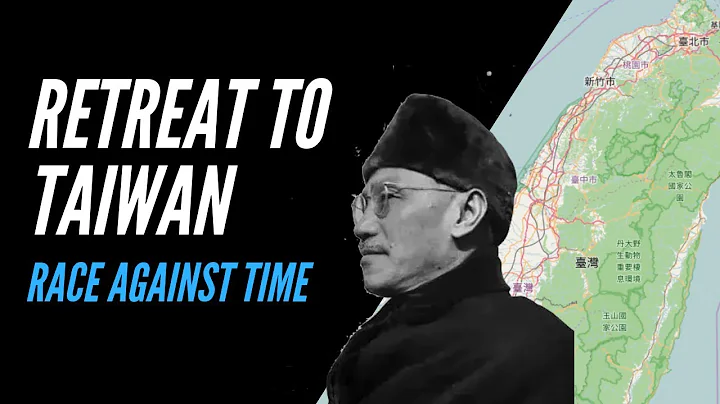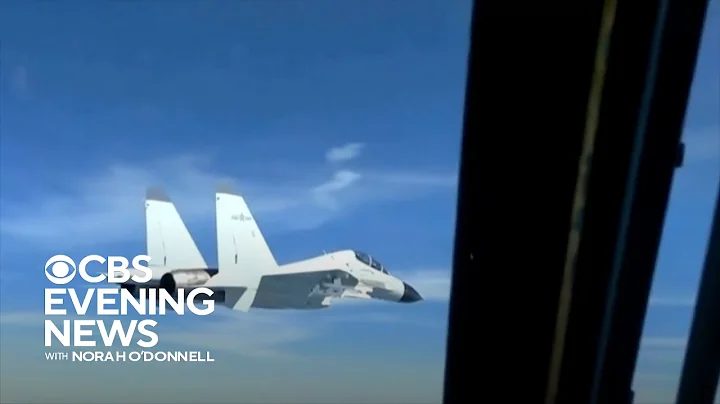He was a general among Chiang Kai-shek 's "Five Tiger Generals". He was also the most respected figure by Chiang Kai-shek, and he was also one of the top ten famous anti-Japanese generals of the Kuomintang. His military talent was extraordinary. Even the supreme commander of the Japanese invasion of China called him the "China Tiger General." The American General Stilwell also called him the most capable general in the Kuomintang army. He was even published in the United States " Dictionary of Chinese Personal Names " all calls him the "Victorious General".
However, such a famous senior general of the Chinese army was extremely excited when he heard that his name was included in the list of 43 first-class war criminals on December 25, 1948, and He shouted that he was saved. Even after the Kuomintang retreated to Taiwan,
, and after the founding of New China, he was invited by the central leadership to return to the country. After returning to the country, he was succeeded by 6 marshals, who reached the deputy state level. So who is he? What's so special about it? He is the famous Wei Lihuang .

Wei Lihuang was born in Wei Village, Feihe Town, Hefei City, Anhui Province in 1897 to a poor peasant family. His father died when he was very young, and the family relied on an elder brother who worked as an accountant in the county to make ends meet. Although his family was poor, his family still found ways to send him to a private school. Wei Lihuang was smart and fond of reading since he was a child. When he was young, he studied diligently, read many historical books, and made progress in his thinking.
In his early years, Wei Lihuang participated in the movement against Yuan Shikai's restoration of the monarchy. Later, he gave up his writing and joined the army and was admitted to the Hubei Army Cadet Camp. After graduation, he went to Shanghai to join the revolution, followed Mr. Sun Yat-sen and became a member of the National Army.
Since joining the revolution, Wei Lihuang has been following Mr. Sun in the revolution. It was also while following Mr. Sun Yat-sen that he met Chiang Kai-shek, and thus an indissoluble bond was formed between the two. Wei Lihuang participated in the Northern Expedition , the warlord melee in the Central Plains, and the Anti-Japanese War. However, his famous battle was Chen Jiongming's campaign in the east.
Faced with an enemy attack several times his own, Wei Lihuang was able to calmly and calmly stage a "empty city strategy" without firing a single shot in the area he was responsible for defending. The enemy was afraid of being deceived and did not dare to advance easily. After hesitating for a while, they finally chose to withdraw their troops, thus giving Wei Lihuang a military exploit.
During the Northern Expedition, Wei Lihuang once again demonstrated his military talent. Especially in the fierce battle with Sun Chuanfang , he showed his extraordinary military talent and was awarded the banner of "Party-State Gancheng", thus gaining high trust from Chiang Kai-shek. And in the subsequent battle with the Red Army , Wei Lihuang took advantage of the fact that the Red Army had just moved and captured Jinshan Village without a single soldier, thus gaining even more appreciation and respect from Chiang Kai-shek.
Although Wei Lihuang handled the issue of encirclement and suppression of our troops in the early days, he did not handle it satisfactorily. But when it comes to dealing with the issue of the Anti-Japanese War, he is one of the few "anti-war faction" within the national army. Especially after the July 7th Incident, Japan began to fully invade China. The Chinese nation reached its most critical juncture. Wei Lihuang was filled with anger and resolutely resisted Japan. He will surely expel the Japanese invaders and revive China.
After the Marco Polo Bridge Incident, Wei Lihuang served as the commander-in-chief of the 14th Group Army, the Second Theater and the South Road Front Enemy. With lightning speed, he commanded the troops to win the prestigious "Battle of Qikou", which dealt a heavy blow to The arrogance of the Japanese army made Wei Lihuang fearful. After this battle, Wei Lihuang became one of the "Five Tiger Generals" within the Kuomintang.
In fact, compared to the other four so-called tiger generals, only Wei Lihuang truly gained this honor through his military service. Even Japan’s Commander-in-Chief of Invasion of China Koyuki Kiyoshi had to admit that this opponent was a member of the "Chinese Tiger General". Stilwell, chief of the U.S. General Staff of Aid to China, also said that Wei Lihuang was a true doer in the Kuomintang. This shows how powerful Wei Lihuang's military talent is.
During the Anti-Japanese War, Chiang Kai-shek dispatched Wei Lihuang to lead the 14th Army to Shanxi. Its real purpose was to contain military important areas and monitor our army's actions. It's true that God's calculations are worse than those of man. Chiang Kai-shek, who has always been careful about everything, miscalculated this time.

However, when Wei Lihuang rushed to Shanxi in a hurry, he was deeply affected by the scenes of the Eighth Route Army's heroic resistance to Japan, especially the victory at Pingxingguan and the defense of Taiyuan. Wei Lihuang's attitude towards the Eighth Route Army suddenly changed 180 degrees, praising the Eighth Route Army as the real anti-Japanese war team. Therefore, in terms of the supply of military supplies, Wei Lihuang personally called Wu Haide, the head of the military supplies office, to purchase condolences worth 10,000 yuan for the Eighth Route Army.
It is worth mentioning that when Mr. Lin was accidentally injured by a bullet from the National Army, among the people who came to visit him, the one who surprised Mr. Lin the most was Wei Lihuang. What was unexpected was not just his identity as a national army general, but also the gift Wei Lihuang brought. Because in the tradition of the national army, there is an unwritten rule that whenever you visit an injured general, you must give money. The higher the position of the injured person, the more money the caregiver will give.
At that time, Mr. Lin was serving as a teacher. According to convention, Wei Lihuang should give more than a thousand yuan in money. Because at that time, Wei Lihuang made a special trip to visit Yan'an and stopped by to visit Mr. Lin. Therefore, Wei Lihuang had almost no money with him, but Wei Lihuang still took out all the money of the group and collected a few hundred yuan.
After meeting Mr. Lin, Wei Lihuang first expressed his cordial condolences, and then asked Mr. Lin: Does Mr. Lin need my help? Whether it's medicine, clothing, or food (the most scarce items in the border area), I can express my thoughts. Surprisingly, Mr. Lin refused.
Wei Lihuang felt embarrassed, and then asked: Does the army need anything? Mr. Lin was not polite at this time and immediately replied: Ammunition! Wei Lihuang agreed: Then I will give Commander Lin ammunition! On the day Wei Lihuang arrived in Xi'an, he immediately ordered the Logistics Department to allocate 1 million rounds of rifle bullets to the Eighth Route Army, 2.25 million hand grenades of various types, and dozens of truckloads of other supplies.
In 1938, Wei Lihuang and his troops were intercepted by the Japanese army and were trapped in a dilemma on the banks of the Yellow River. His secretary Zhao Rongsheng suggested that he take the road to northern Shaanxi and visit Yan'an by the way.
When he learned that Wei Lihuang was going to visit Yan'an in person, the chairman personally instructed to organize a special team to take Wei Lihuang and his party seriously. After all, Wei Lihuang was the first senior official in the national army to visit Yan'an, because this move was of great significance to the cooperation between the Kuomintang and the Communist Party in the fight against Japan. After Wei Lihuang visited Yan'an, he praised everything in Yan'an. He said that although the people in Yan'an live in poverty, they are very energetic, organized and clean, which is in sharp contrast to the luxury and corruption in the Kuomintang-controlled areas.
Especially in the three years from 1939 to 1941, when Wei Lihuang was in charge of the Anti-Japanese War in Luoyang, Henan, he had more than 60 telegrams with the Chairman. The two discussed the theories and strategies of the Anti-Japanese War and revolution together. Through communication with the chairman, Wei Lihuang gained a deeper understanding of the Communist Party.

However, when Chiang Kai-shek discovered that Wei Lihuang had provided a large amount of material assistance to the Eighth Route Army and was too close to the Communist Party, he suspected Wei Lihuang of collaborating and immediately transferred him out of Henan and revoked his appointment. Position. It wasn't until the Chinese Expeditionary Force went to fight in Myanmar, Wei Lihuang was reused.
During the War of Liberation, Chen Cheng was losing ground in the Shandong battlefield with blind command, so he went to the Northeast to replace Du Yuming, and even boasted that the Northeast War would be ended in half a year. As a result, he was defeated again and again, and he couldn't even stand on his feet.
At the beginning of 1948, Chen Cheng resolutely resigned on the pretext that his old illness had relapsed and he needed to go abroad for treatment. He even asked his wife to go to Wei Lihuang's house to beg, asking Wei Lihuang to rush to the northeast to replace him.Wei Lihuang had been away from the battlefield for several years. It could be said that he had been relegated to the cold palace by Chiang Kai-shek. Unexpectedly, he suddenly became popular again at this time. The top brass of the national army sent people to lobby Wei Lihuang one after another, asking him to go to the Northeast to take over. In the end, Wei Lihuang was recruited back by Chiang Kai-shek and appointed commander-in-chief of the Northeast Suppression.
In fact, Wei Lihuang once contacted the CCP and hoped to join our party. However, after careful consideration, the leaders at the time declined politely because it was a very critical period for the Kuomintang and the Communist Party to cooperate in the fight against Japan.
Although Chiang Kai-shek reused Wei Lihuang at this time, he was also wary of him. However, after Wei Lihuang arrived at the Northeast battlefield this time, he never thought about taking the initiative to attack. No matter how tragic the troops fighting outside were, he never thought about supporting them.
When our army was attacking Jinzhou, the anxious Chiang Kai-shek ignored the situation of the war and kept giving orders to Wei Lihuang for support. However, Wei Lihuang, who had guessed the intentions of our army, still stood still and refused to carry out Chiang Kai-shek's military orders in order to protect Shenyang.
Wei Lihuang stood still and made Chiang Kai-shek angry. Therefore, Chiang Kai-shek, who became angry and humiliated, convinced Wei Lihuang of being a communist and called him back to Nanjing to put him under house arrest. Once Wei Lihuang left, there was no general in the Northeast to compete with our army. However, after Chiang Kai-shek was forced out of office in 1949, Wei Lihuang was rescued by his old subordinates.
After being rescued, Wei Lihuang immediately took his family to hide in Hong Kong, but he was always watching the developments in the country. On October 1, 1949, New China was proclaimed. When he learned the news, Wei Lihuang was so excited that he immediately wrote a letter and sent it to the great man. The great man and many generals had long been looking forward to the return of General Wei Lihuang, and even sent special personnel to greet him.
After Chiang Kai-shek learned about it, he angrily designated Wei Lihuang as the national army's top war criminal and ordered Mao Renfeng to send out a killer to assassinate him. However, under the full protection of our party, Wei Lihuang came to Beijing safely. The great man cordially held Wei Lihuang's hands and welcomed him back. The generals also expressed their gratitude to Wei Lihuang.
During the Anti-Japanese War, Wei Lihuang also developed a profound friendship with Mr. Peng. At that time, six marshals including Mr. Zhu, Mr. Peng, and Liu Bocheng all supported Wei Lihuang. At the reception banquet, Wei Lihuang chatted cordially with the marshals.

After the founding of the People's Republic of China, Wei Lihuang served as vice chairman of the National Defense Commission, deputy to the National People's Congress, member of the Central Committee, member of the Standing Committee of the Chinese People's Political Consultative Conference, and other positions, reaching the deputy state level. In 1960, Wei Lihuang died of illness. The great man wrote in his eulogy: "During the Anti-Japanese War, Comrade Wei Lihuang was instrumental in the Anti-Japanese War, and his patriotic actions at that time were commendable. He gave a high degree of praise to Wei Lihuang's life. Evaluation.





















